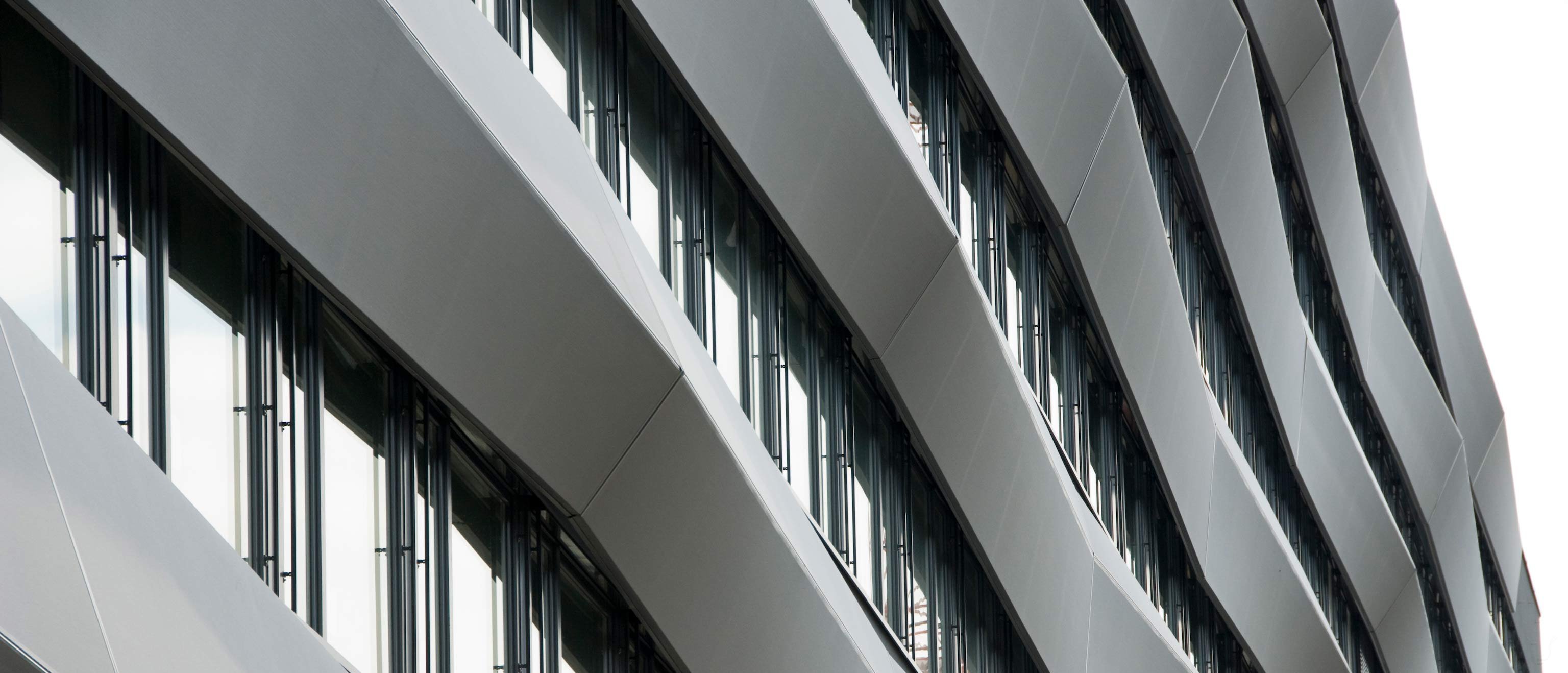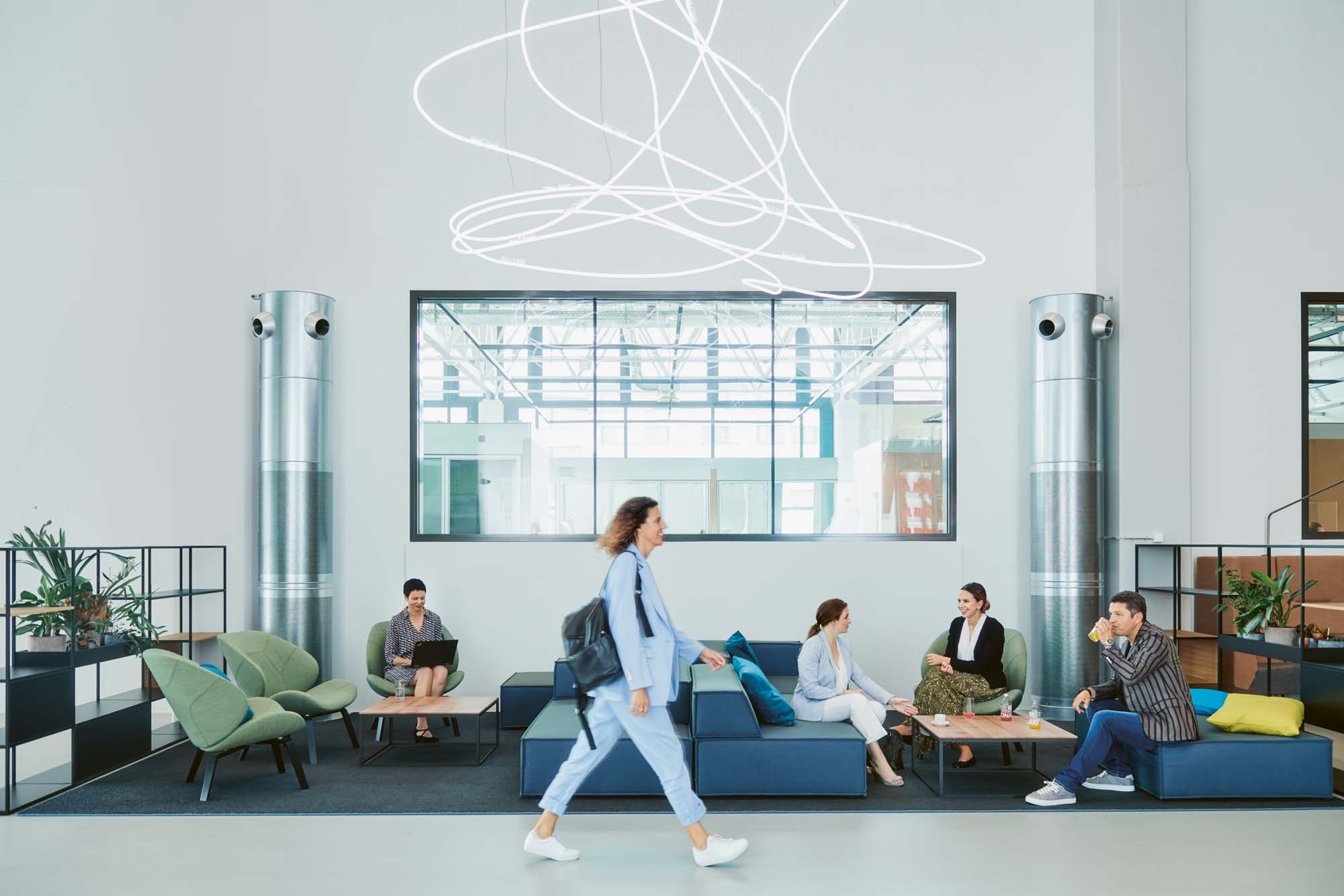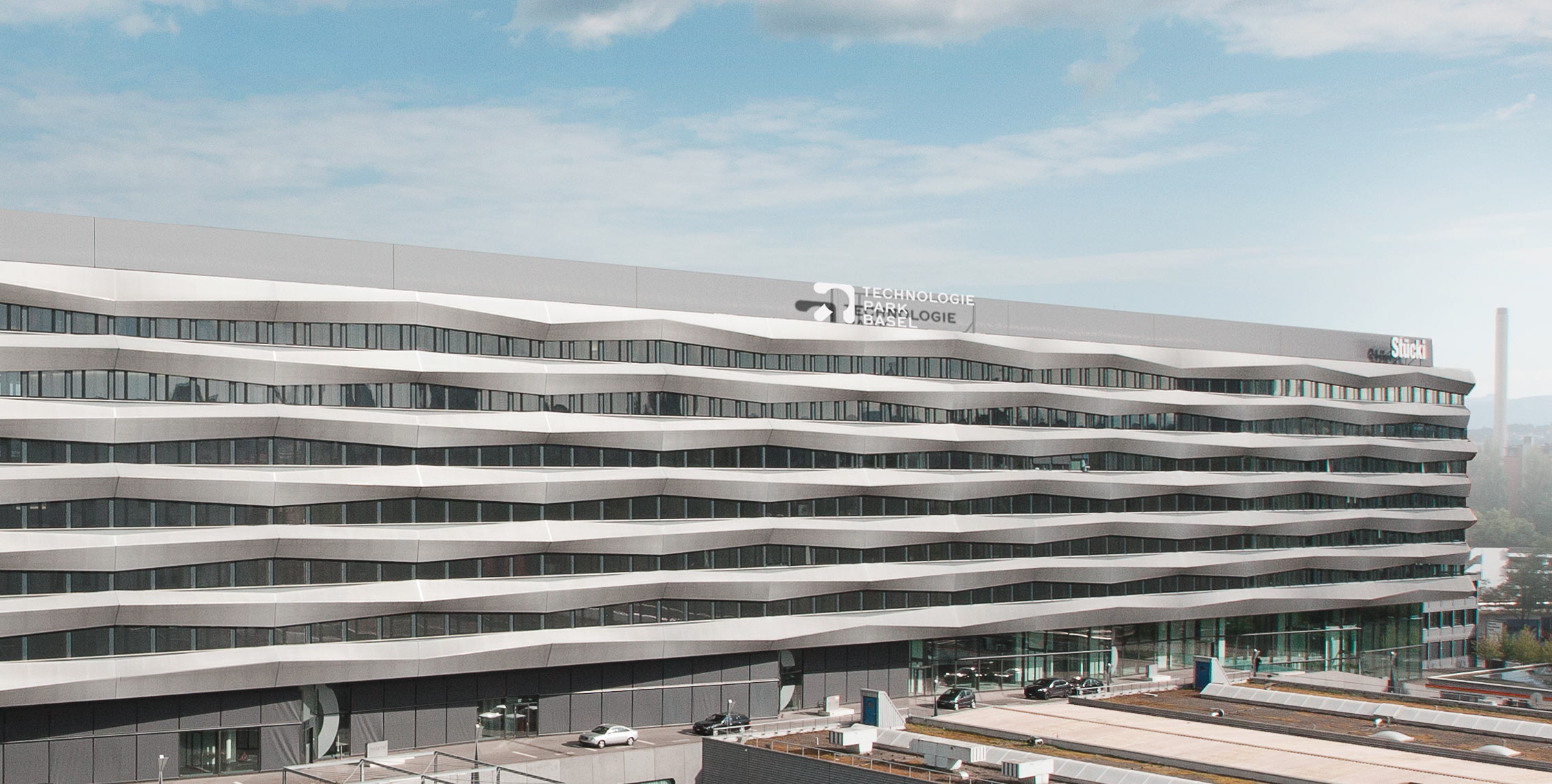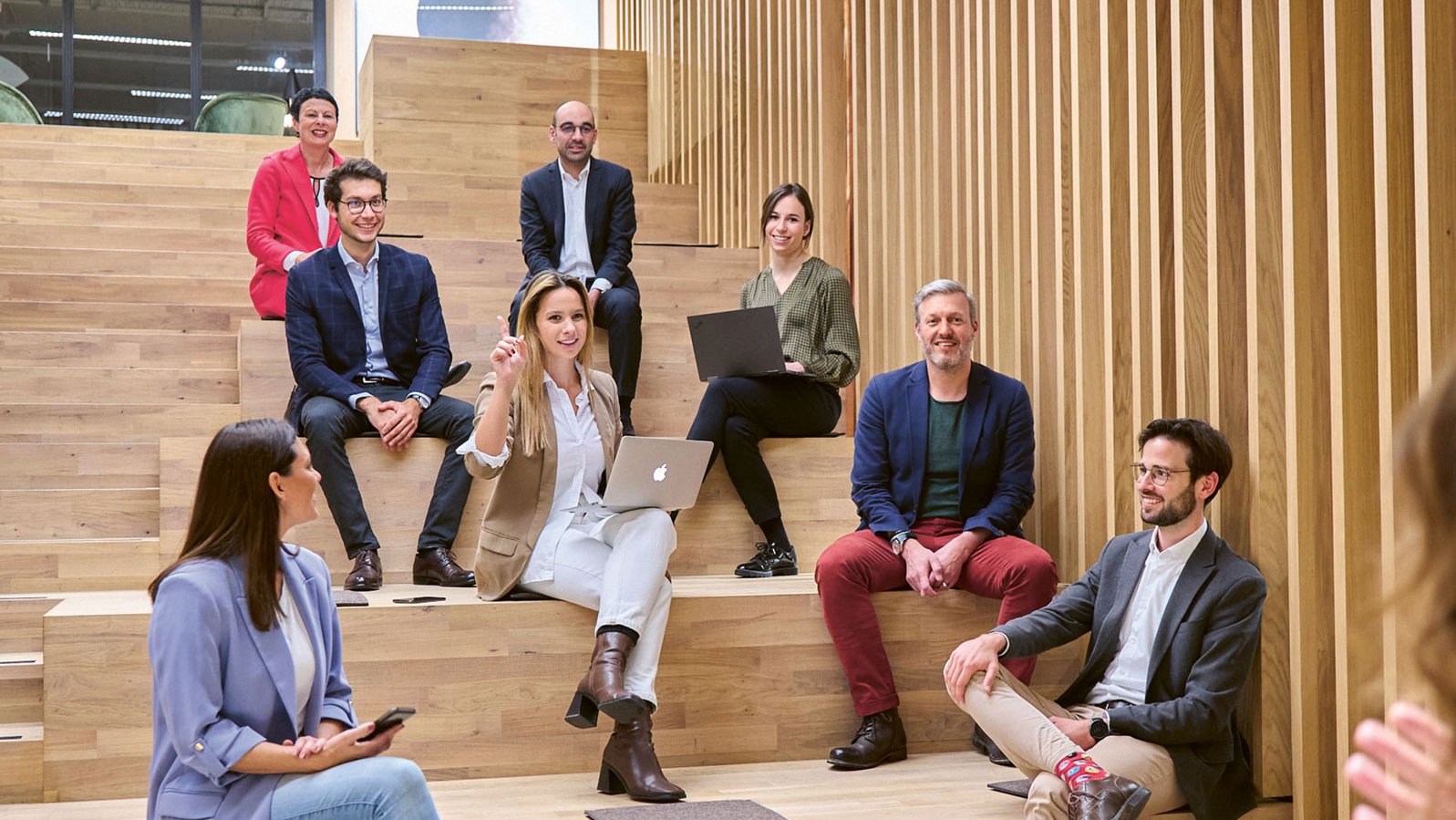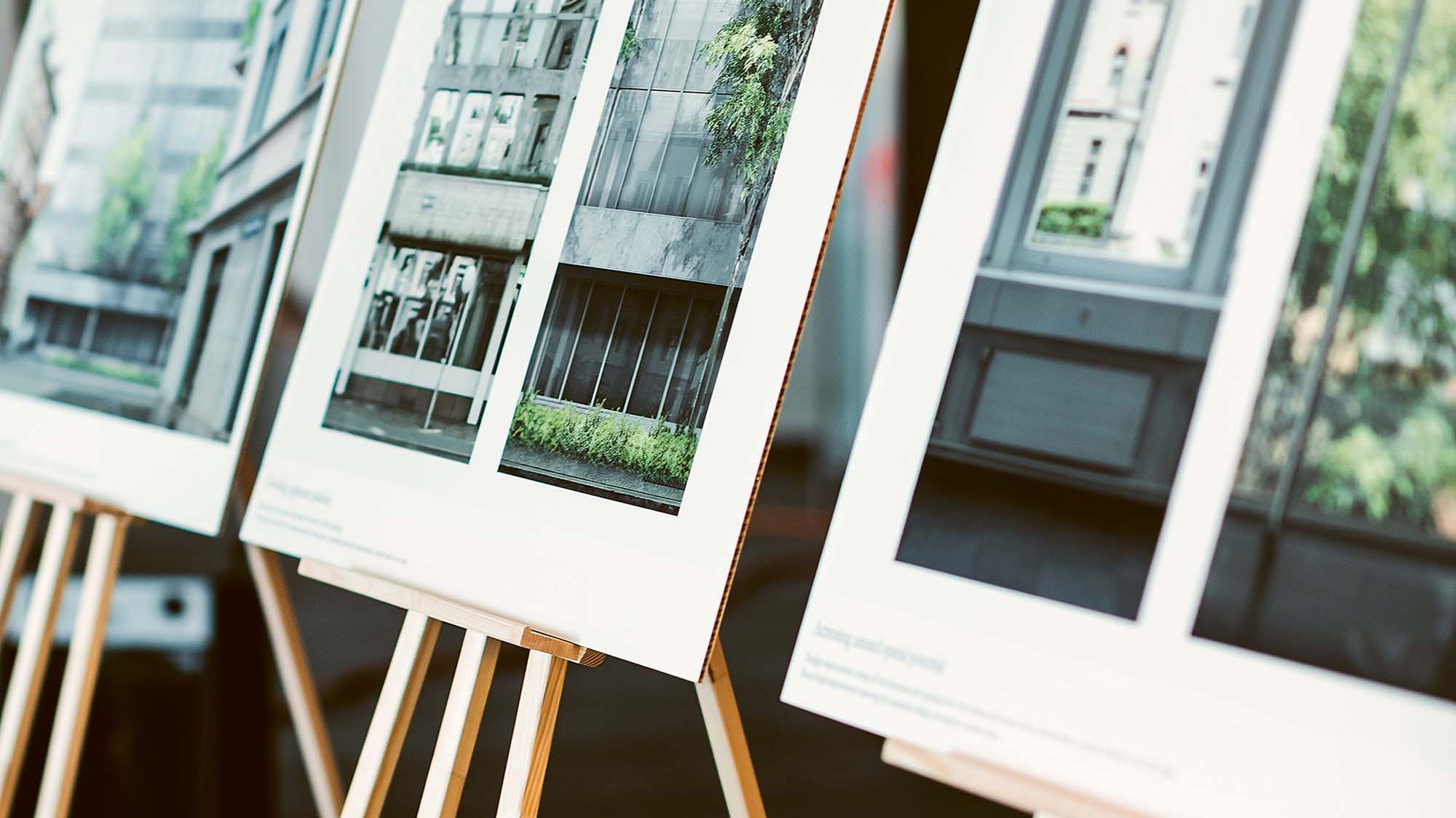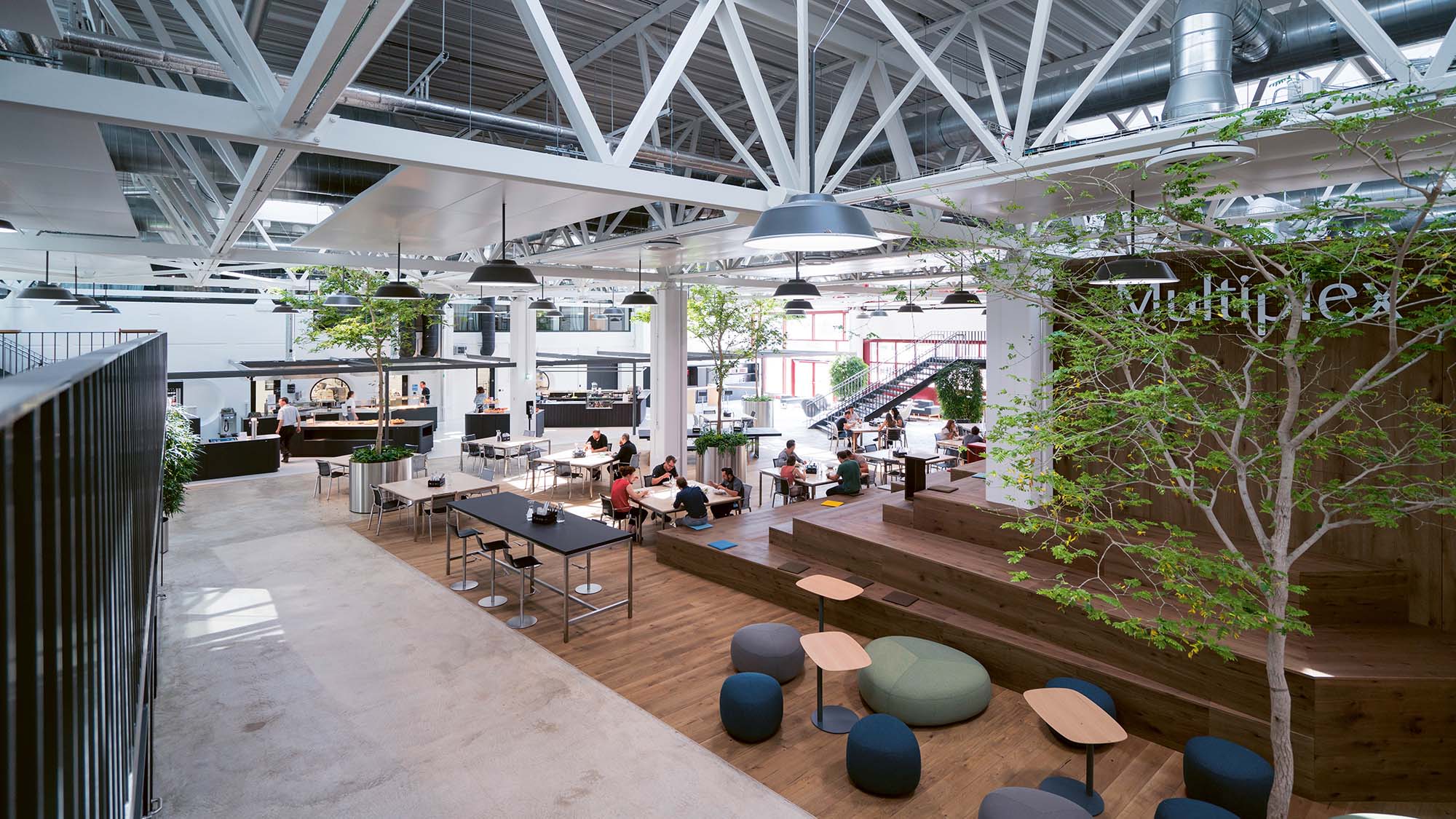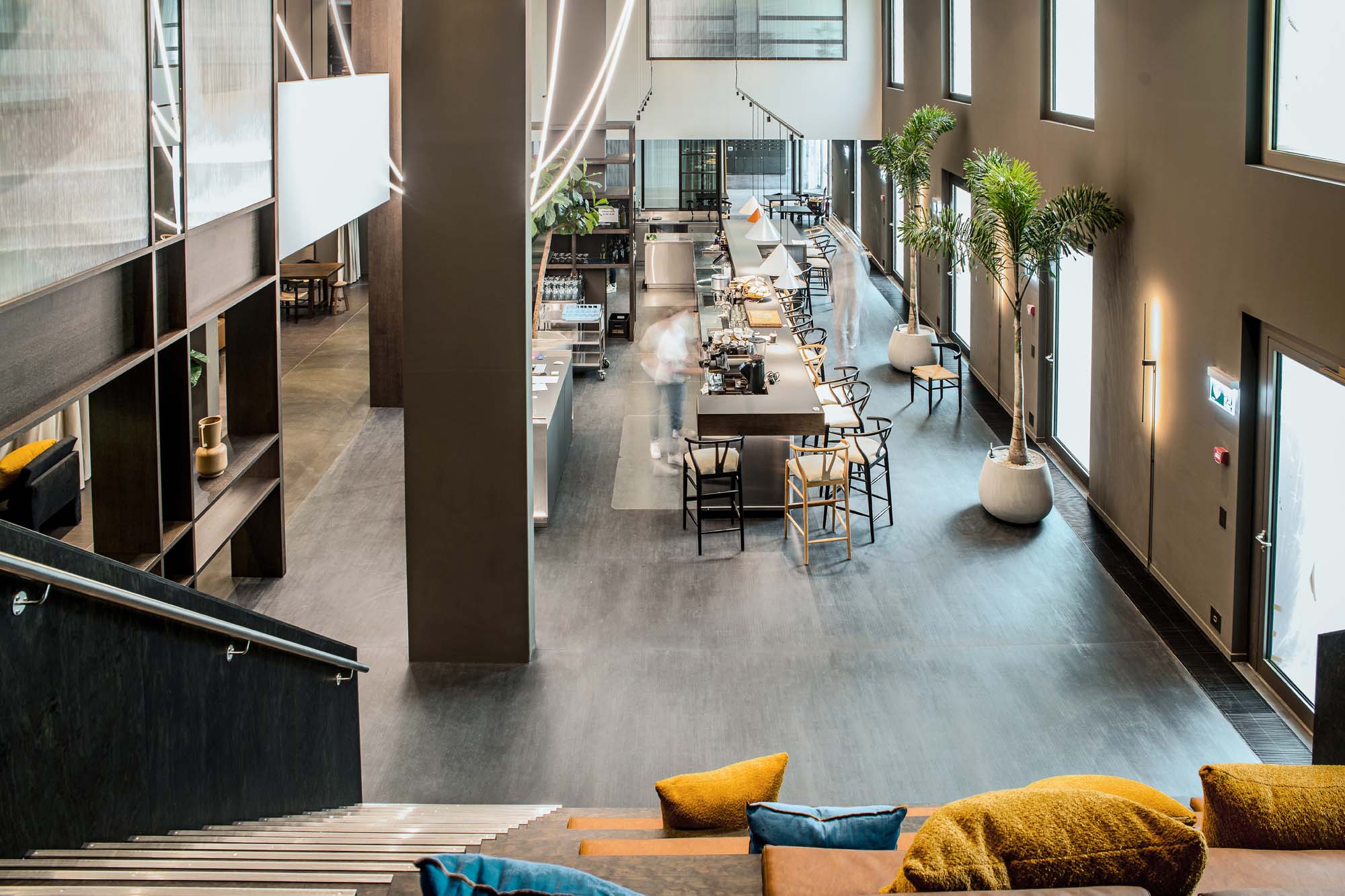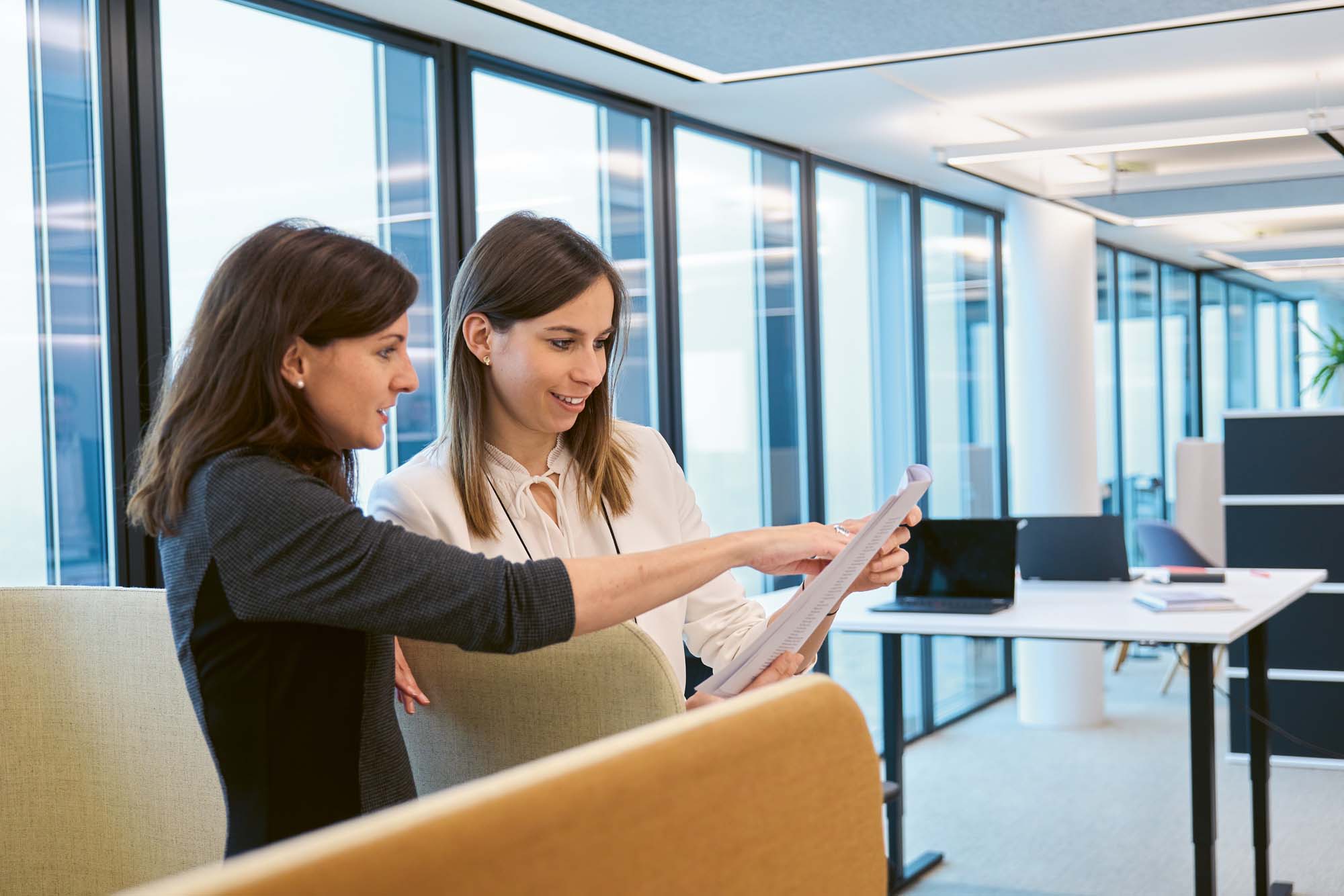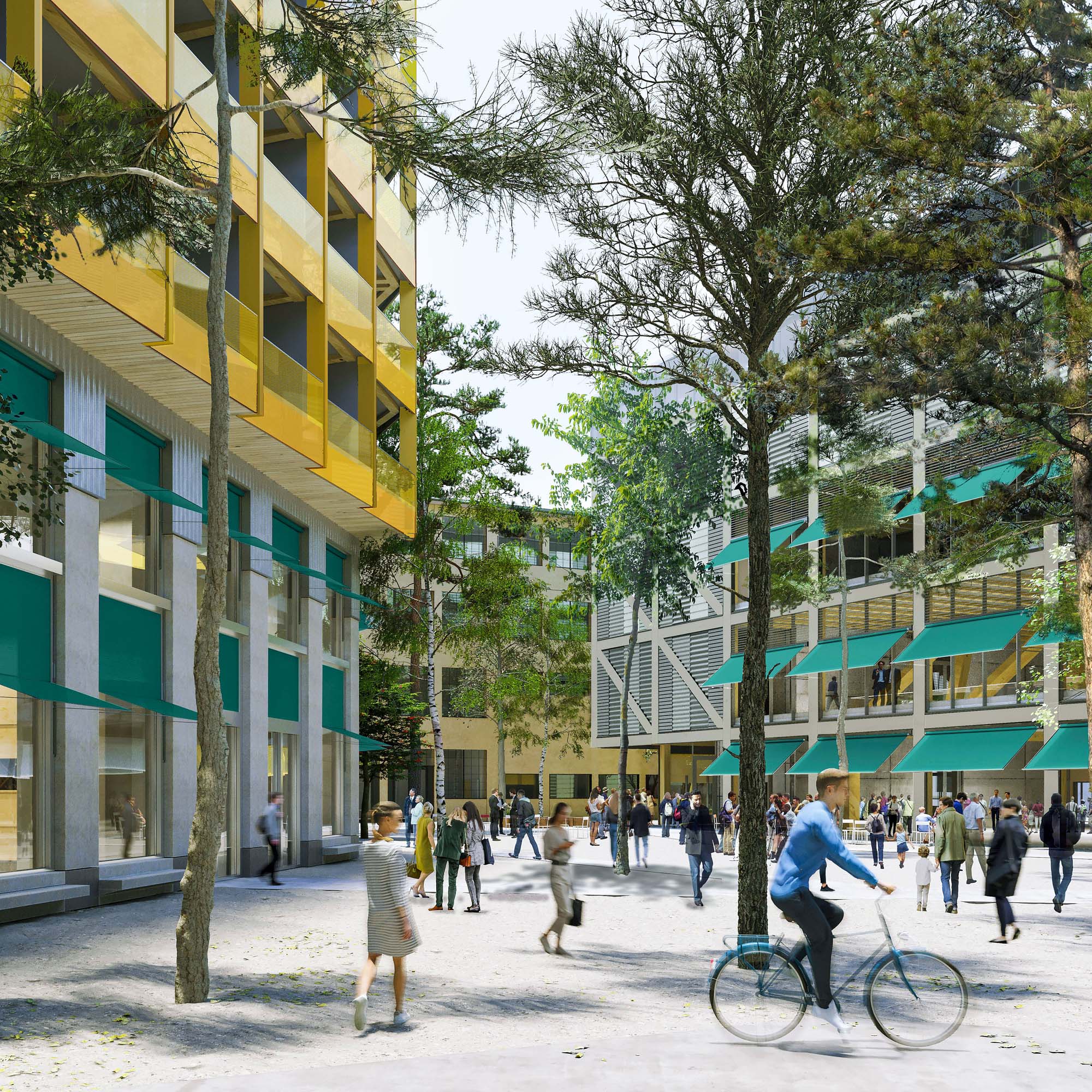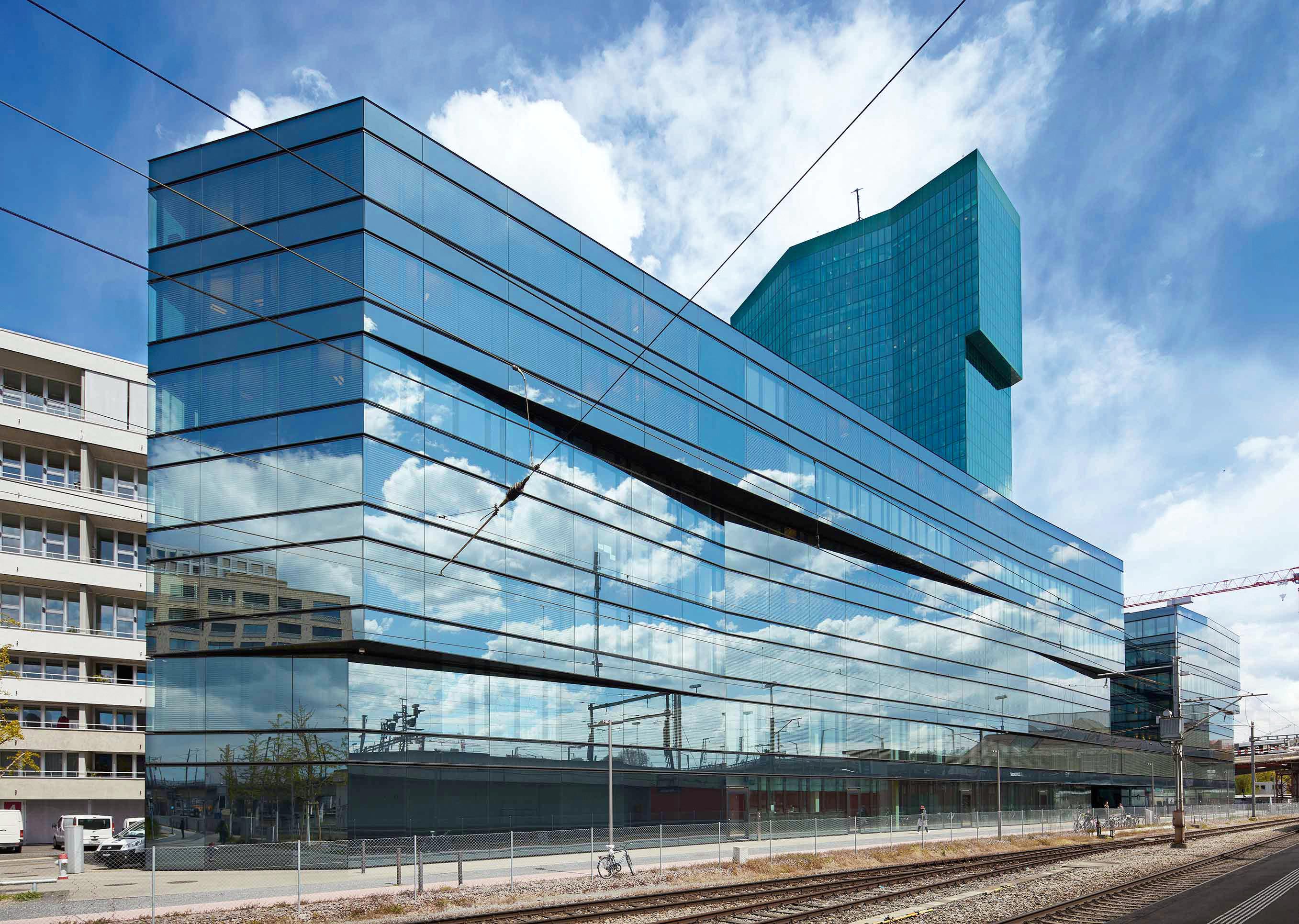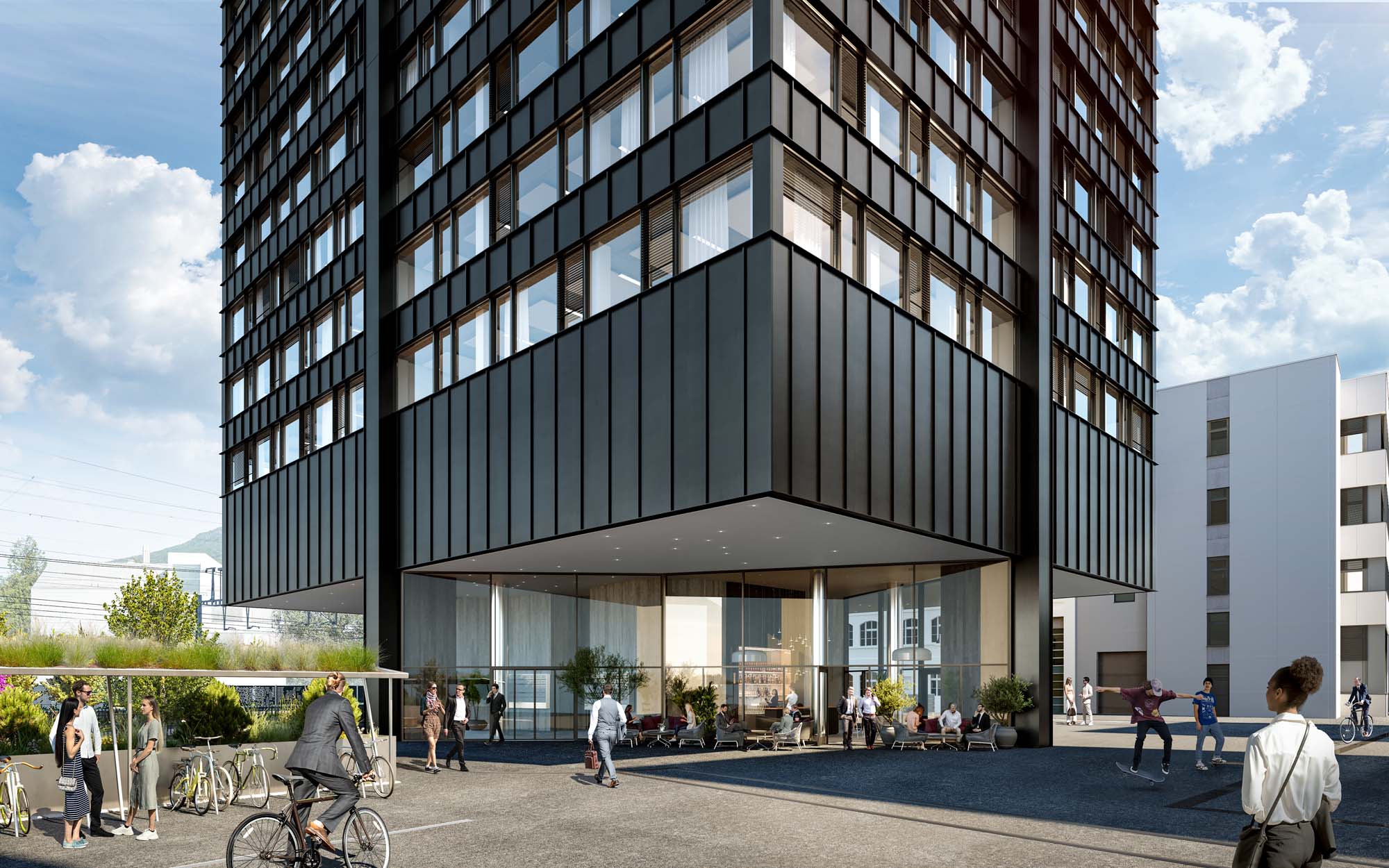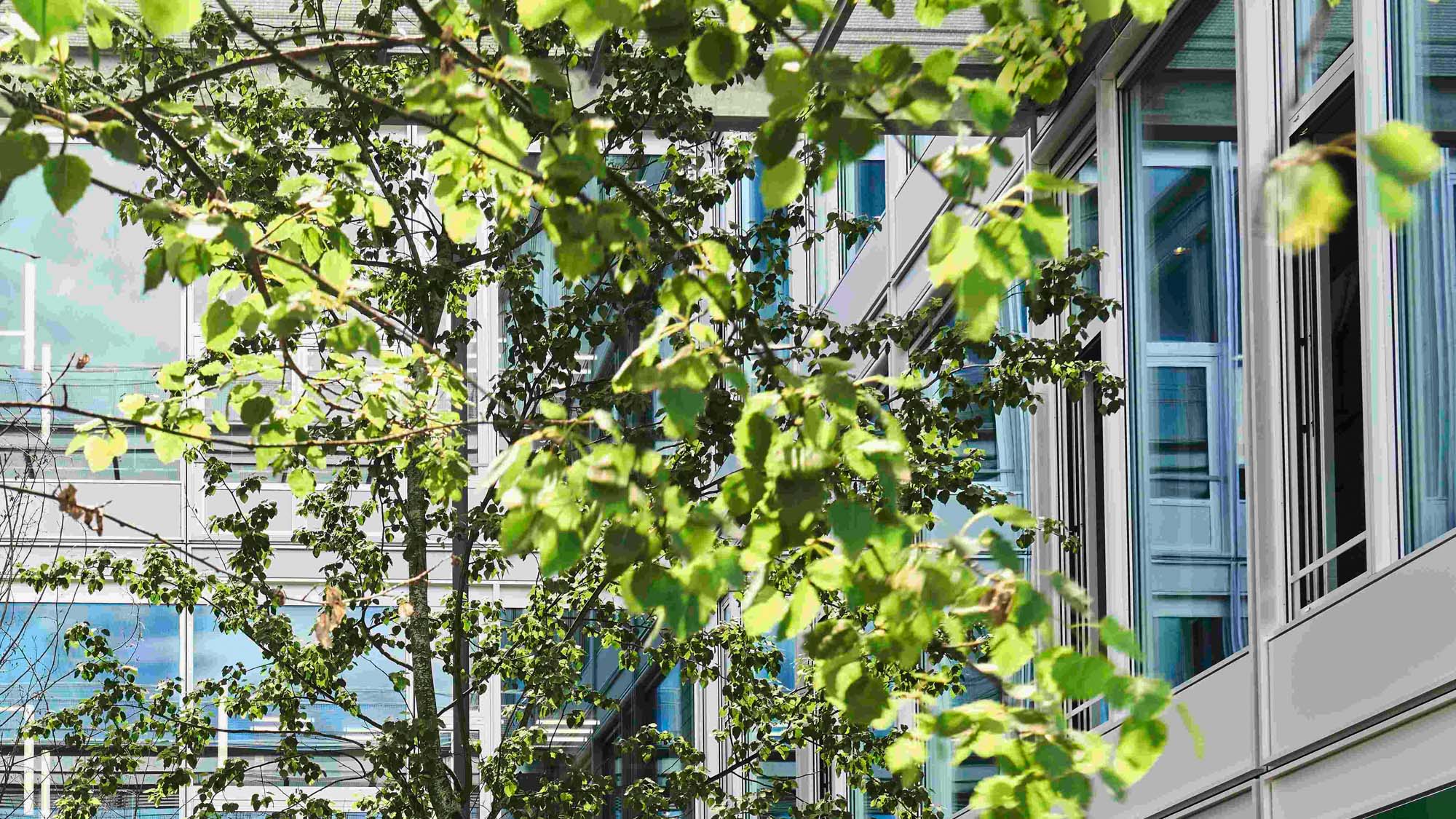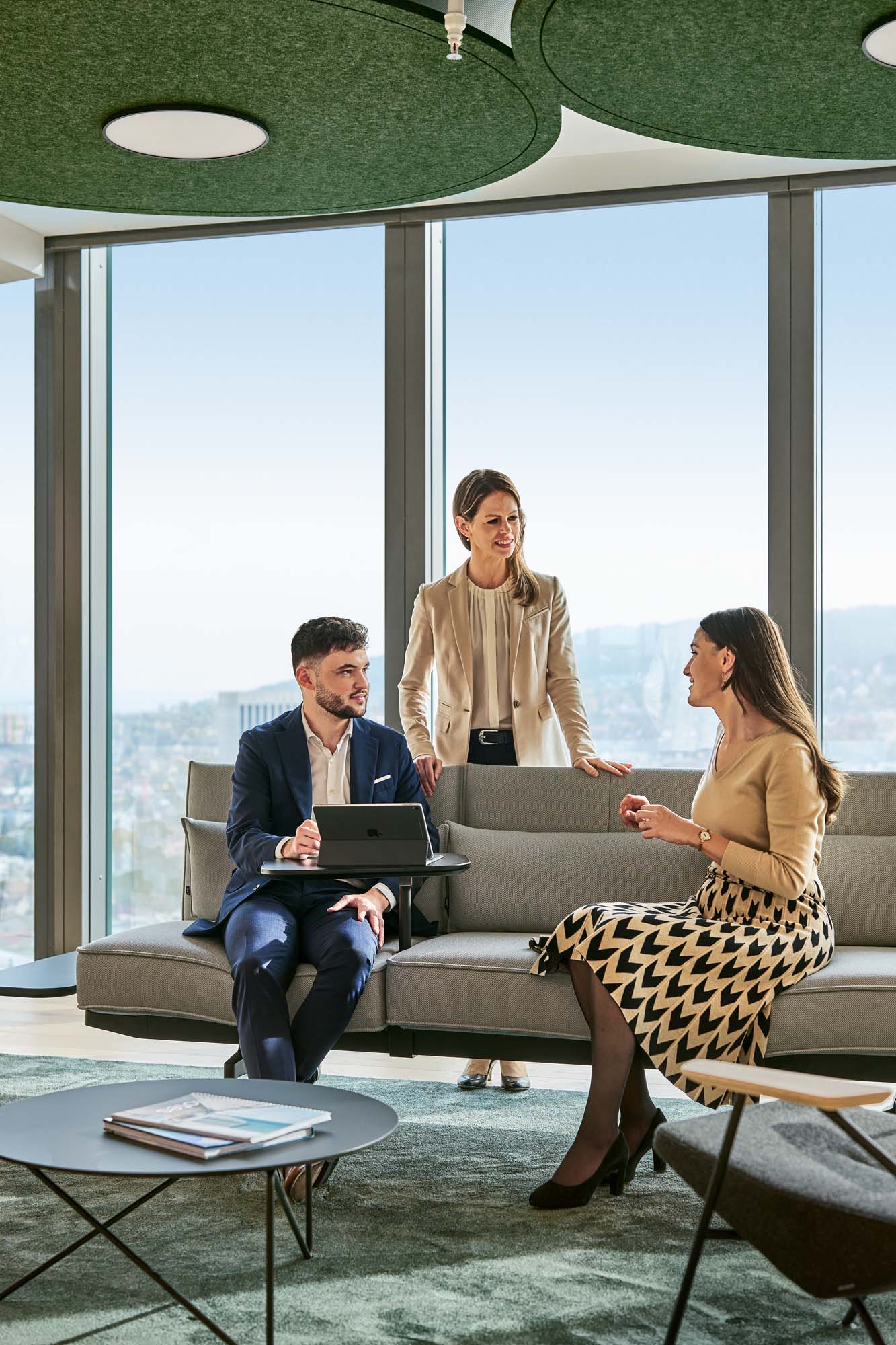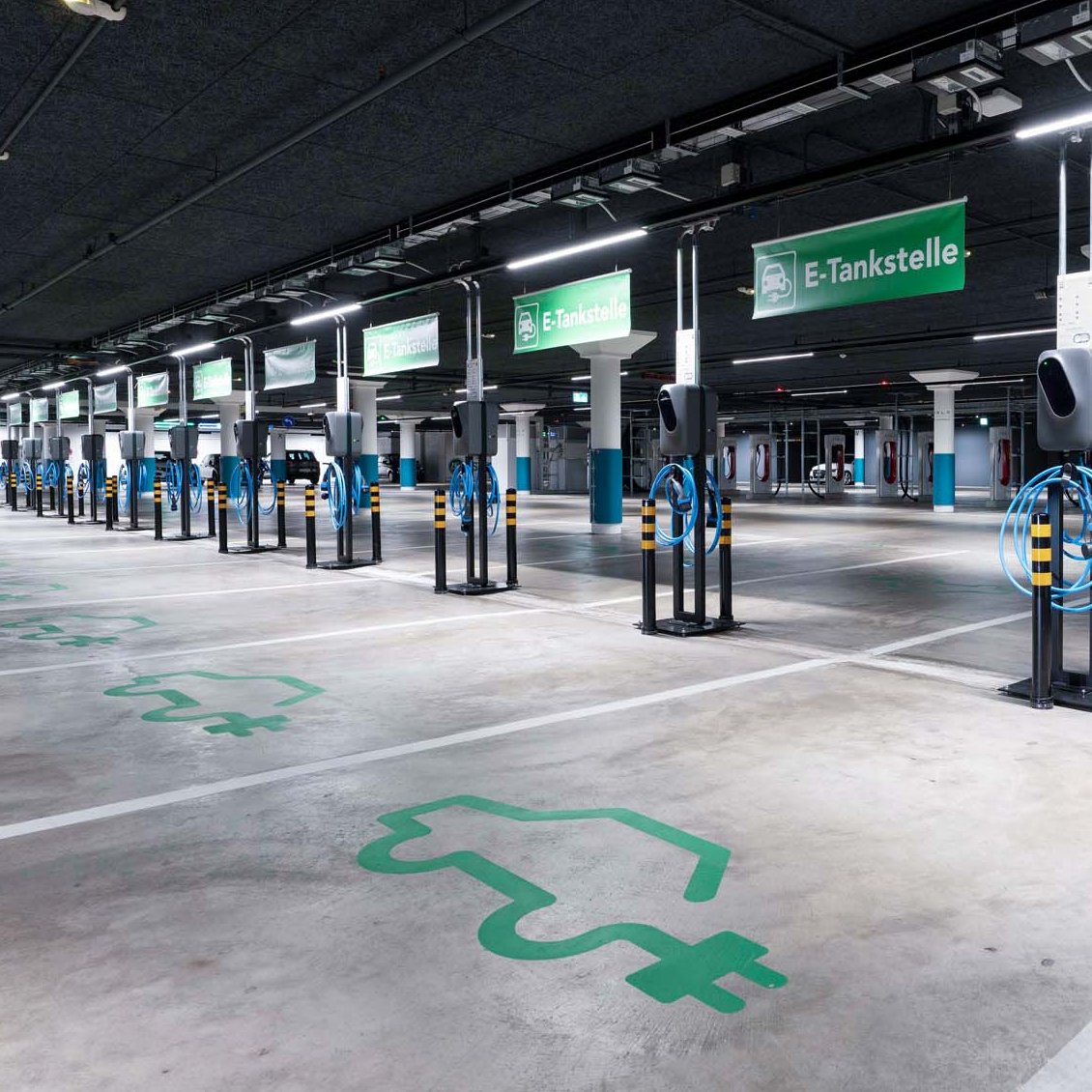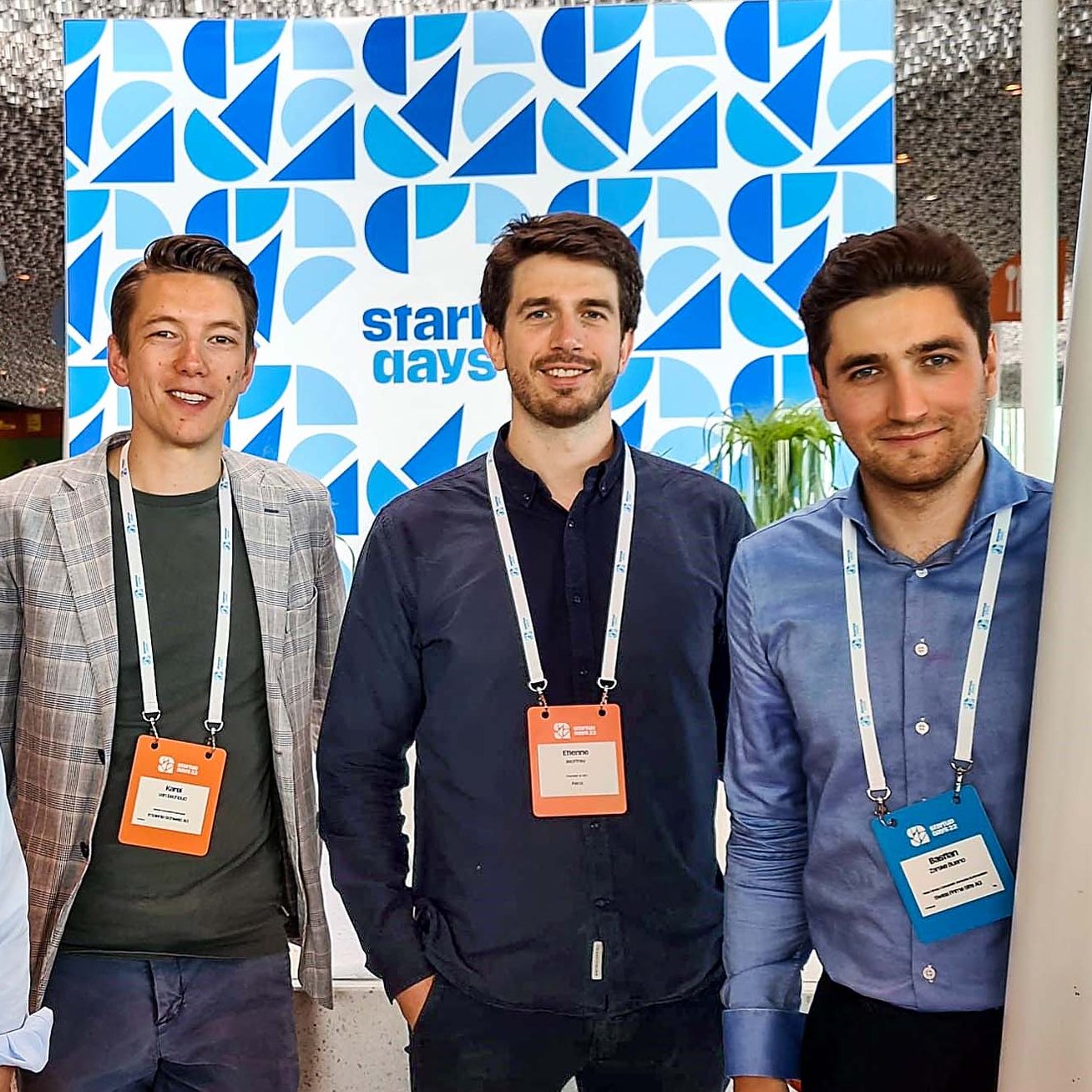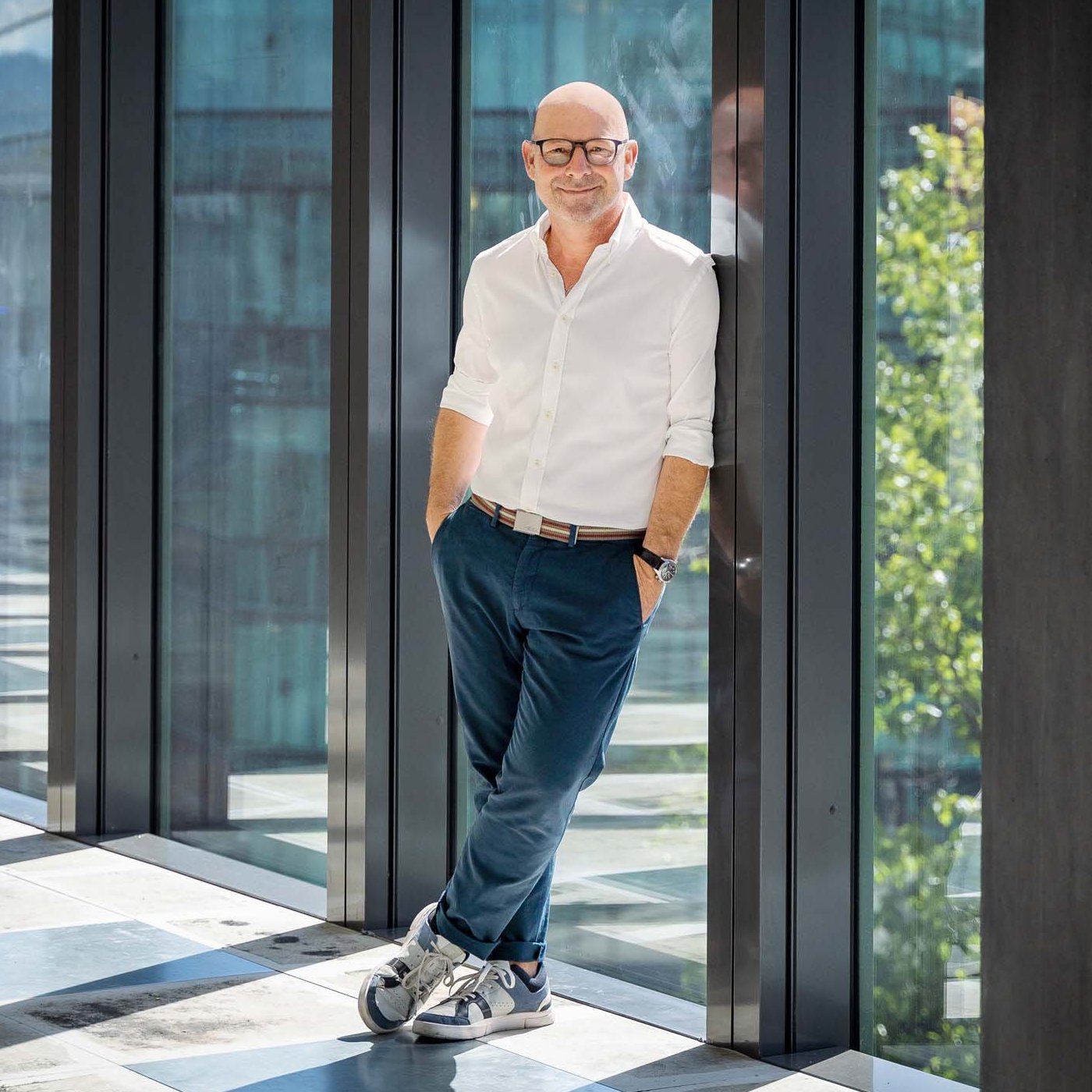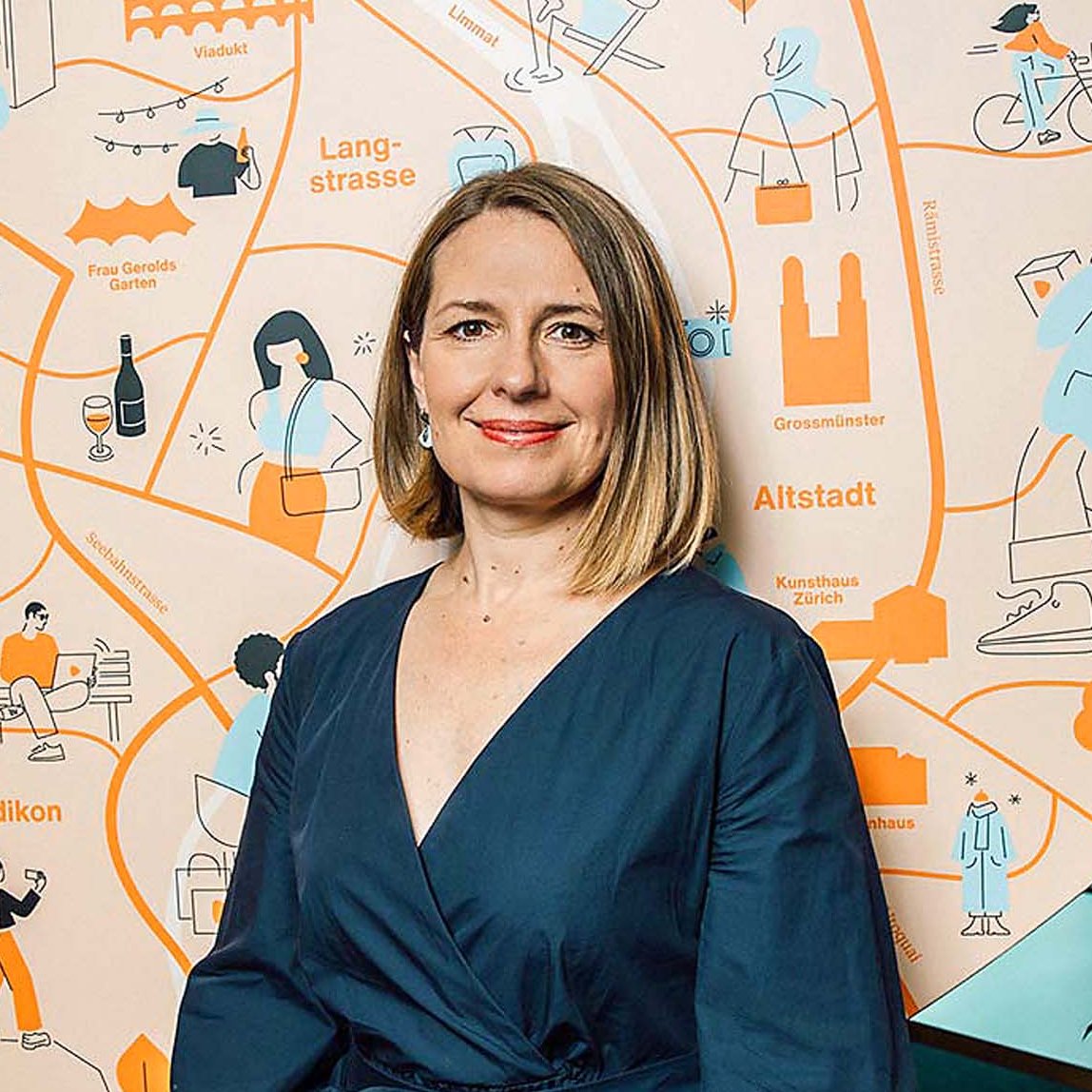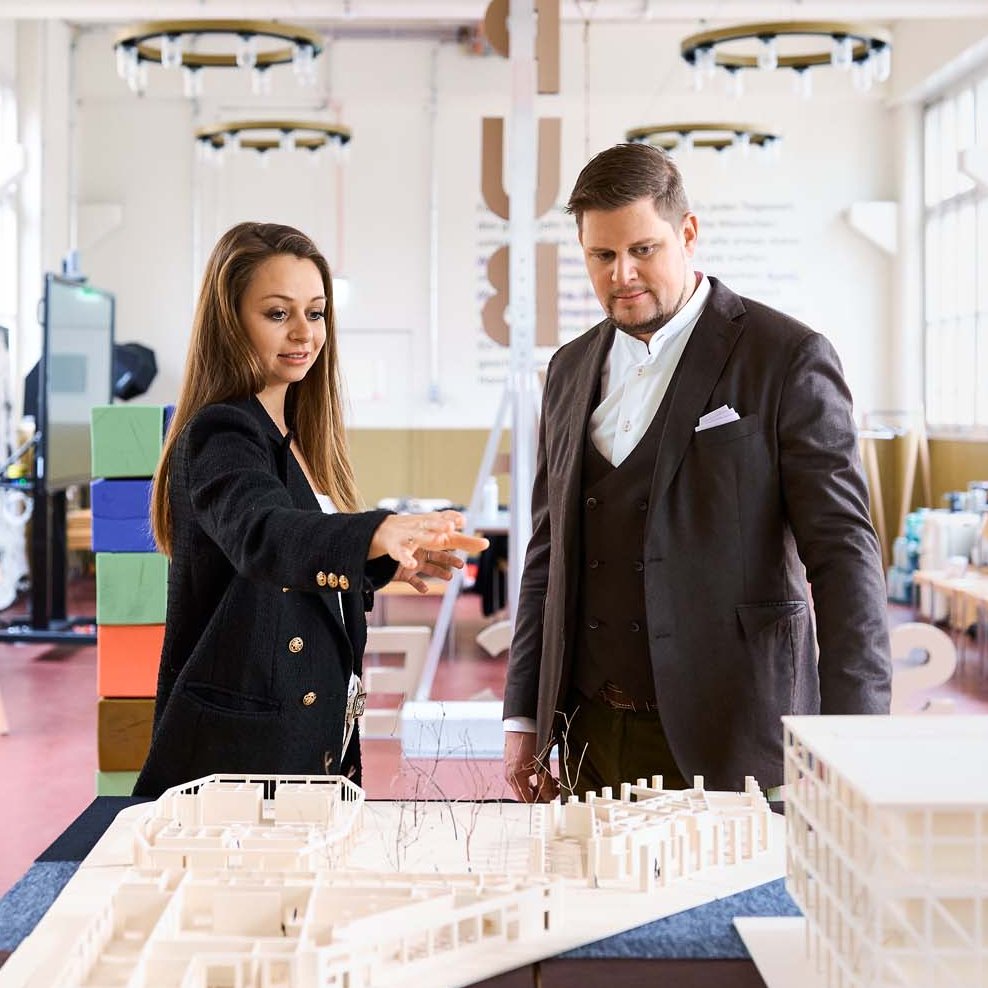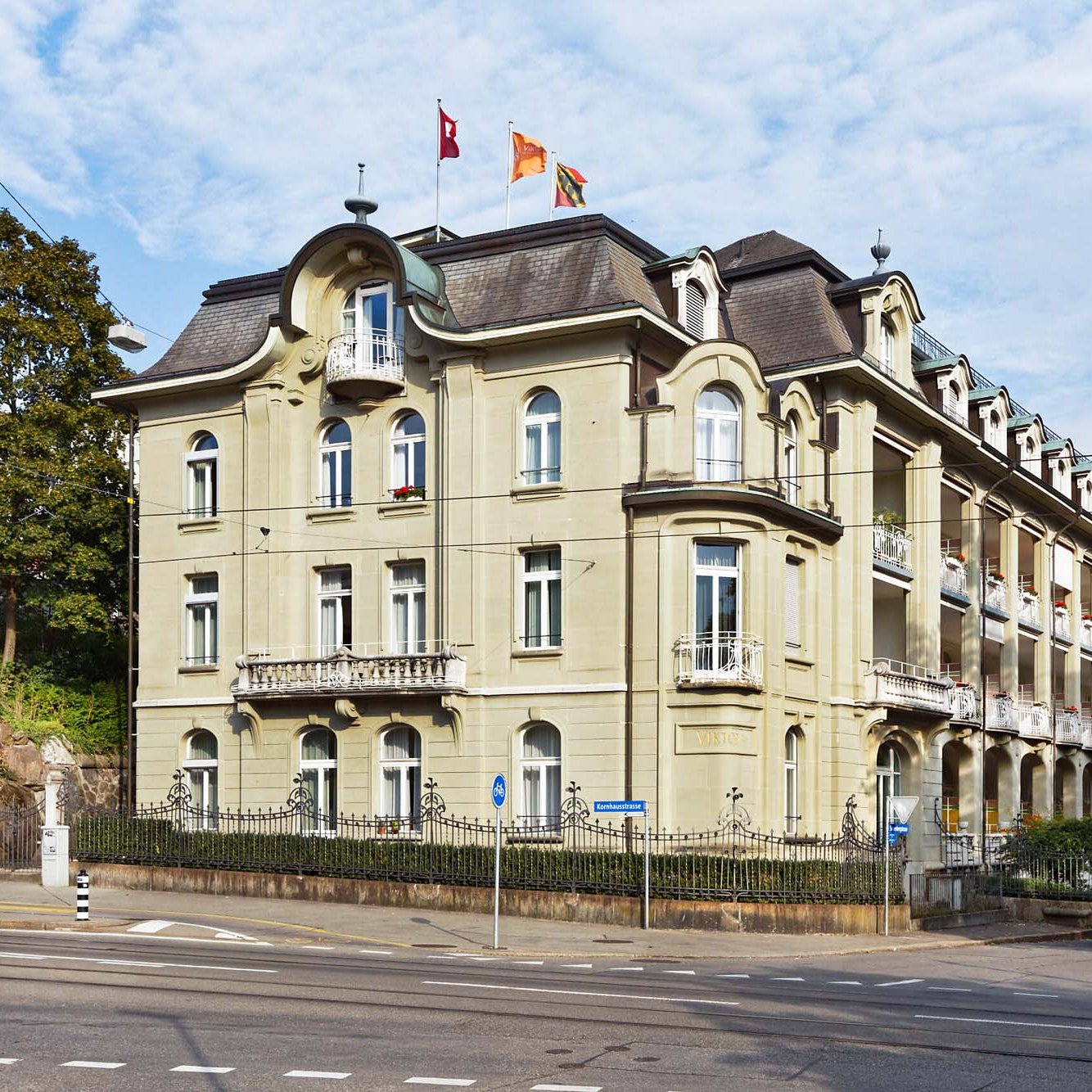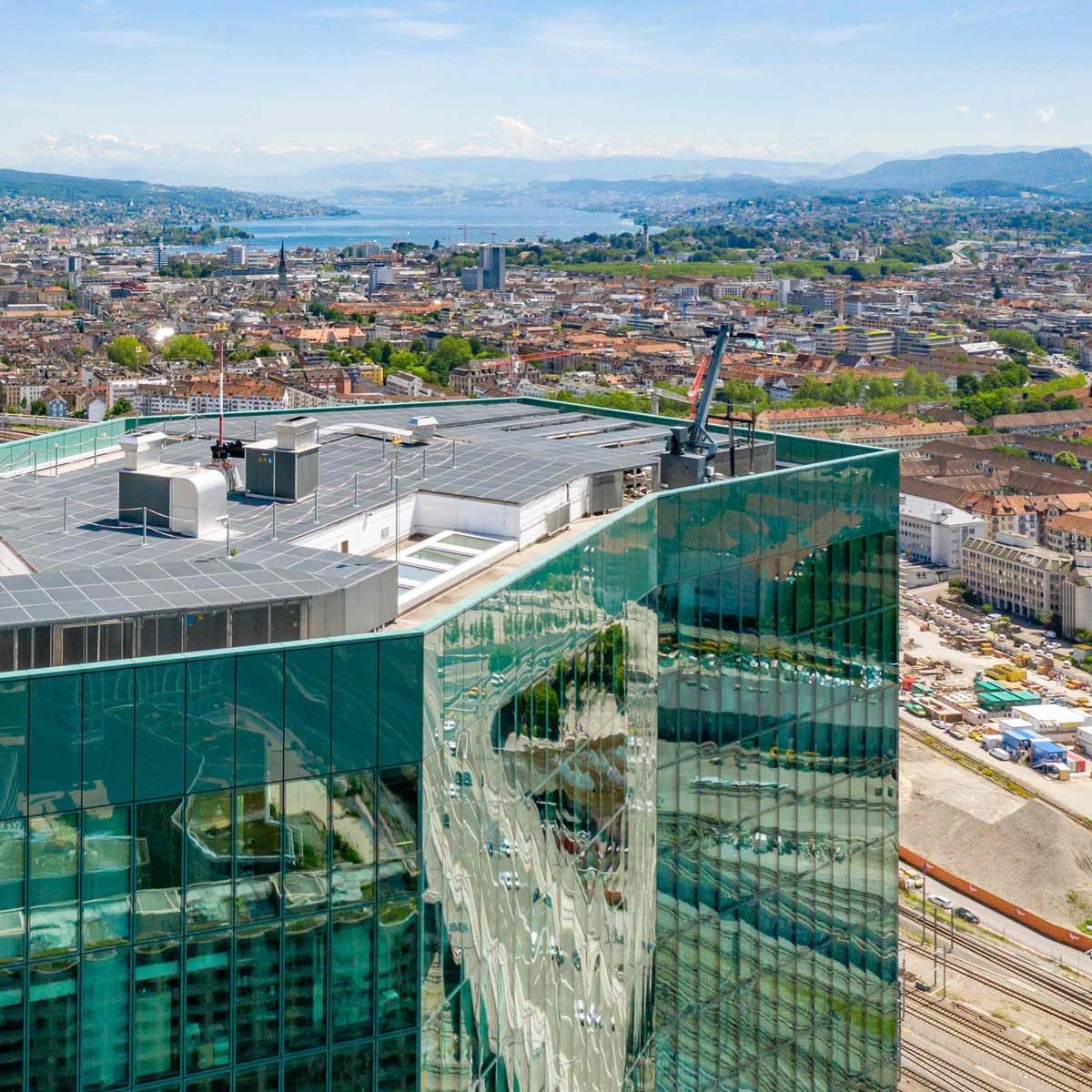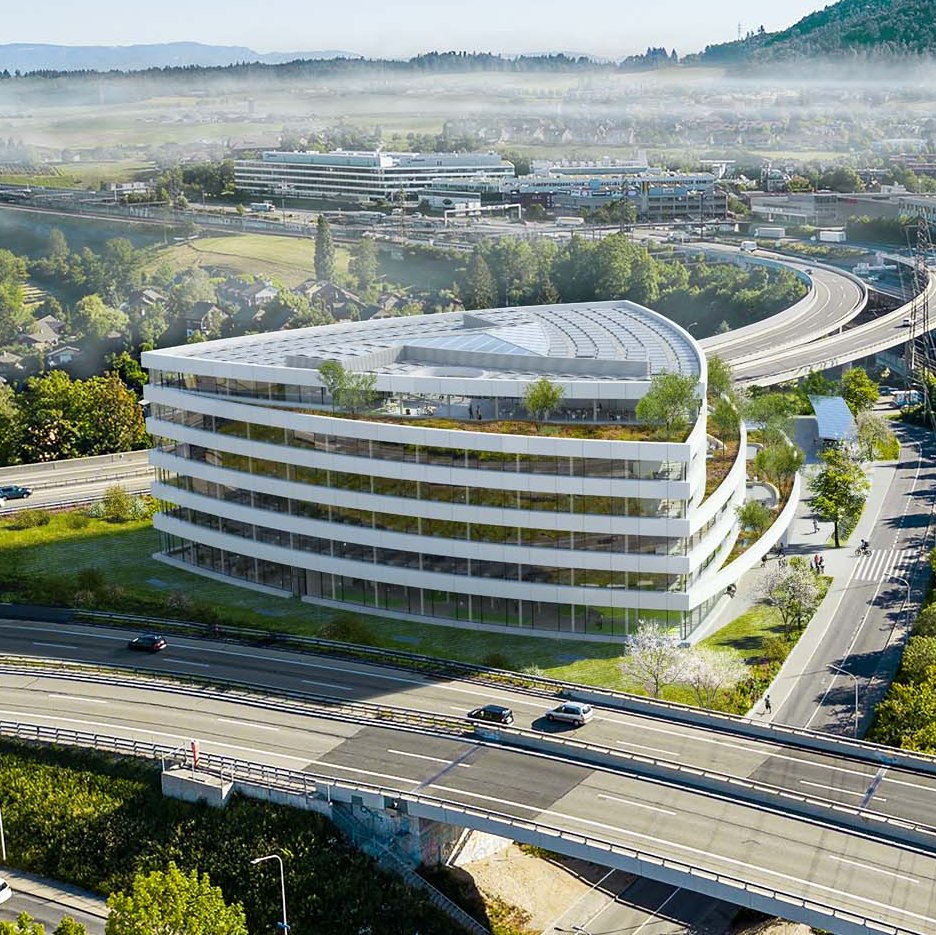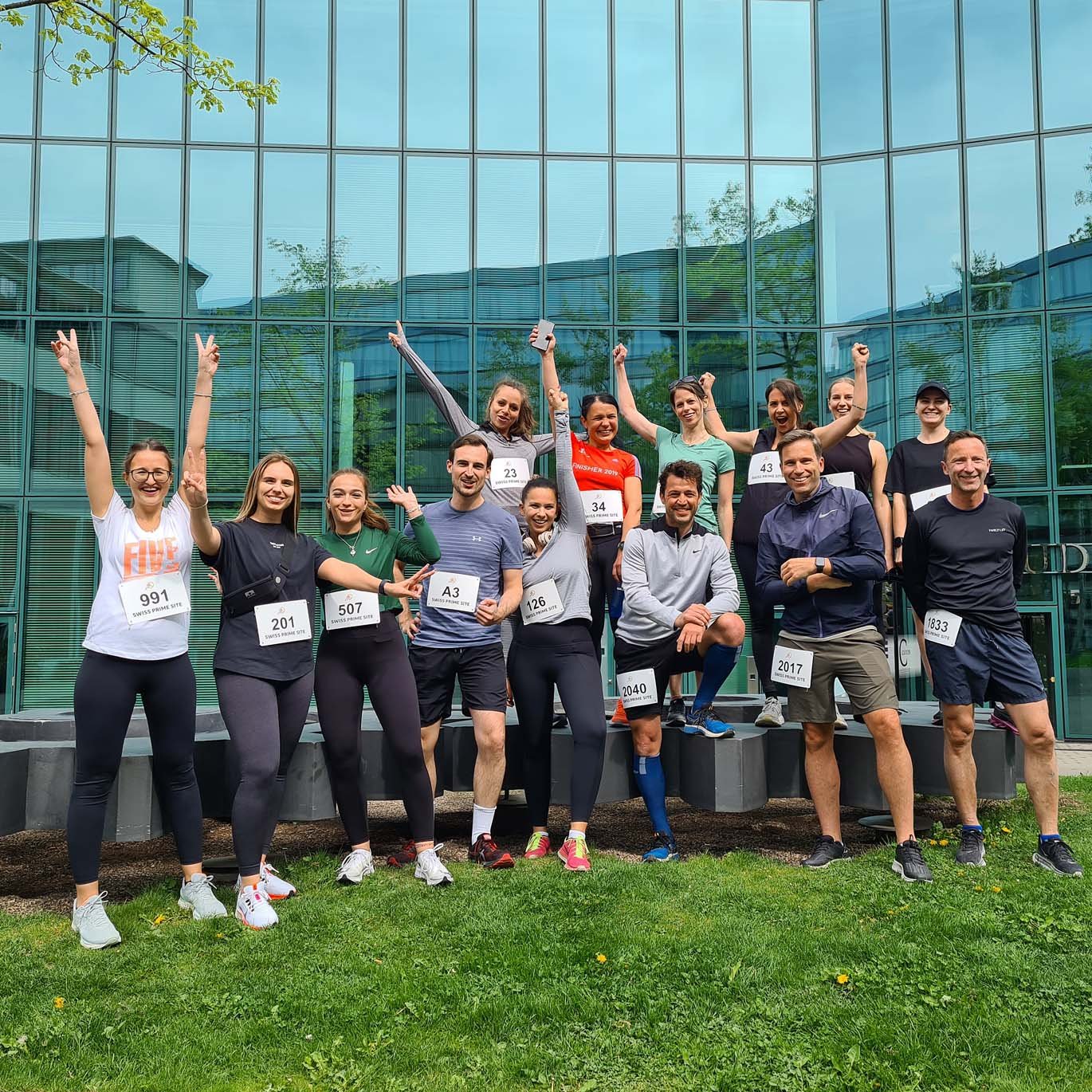Stücki Park – where life sciences and business come together
«Stüggi» – a site with a rich history
Swiss Prime Site acquired the former Stücki shopping centre as part of its takeover of Jelmoli in 2009. The years that followed represented a tough economic period for Switzerland, the bordering regions and the site itself. But when a resurgent Swiss franc led to an increase in cross-border shopping tourism to Germany, the question of the future look of the site was raised. In 2016, the decision was made to completely reposition the historic site in the north of Basel and make it more interesting for everyone. Swiss Prime Site had a clear vision: to make the site much more lively, attractive and exciting through additional types of use. A further goal was to use the existing technology park as the basis for establishing a life sciences cluster in the north of the city.
Phase I – transforming the existing buildings
To achieve these goals, the project was split into two phases. The first involved repurposing the existing buildings. As part of this, the well over 30 000 m2 of retail space was resized considerably to below 10 000 m2. The former shopping centre was thus consigned to history. In the retail category, the main focus is now on meeting the needs of the surrounding neighbourhood. The newly available spaces have been complemented by a comprehensive entertainment concept (mulitplex cinema, gym, bowling alley, virtual reality centre, etc.), various food outlets, an attractive co-working space and, most recently, co-living services from Ariv. To improve accessibility and flow for the residents, visitors and the people who work on the site, the links between the individual sectors have been optimised. This was also done with an eye on the not-too-distant future: as around 4 000 jobs are expected to be created at Stücki Park by 2024, there was a need to increase connectivity at the site. Most of the changes to the existing buildings had been completed by 2020, marking the end of the first project phase.
Phase II – strengthening the life sciences hub
Basel has a long history as a home for large and important pharmaceutical, chemical, biotech and medtech companies. Accordingly, the city on the Rhine is also a major location for research, development and knowledge transfer in these industries. The canton of Basel-Stadt opened its technology park on the Stücki site back in 2011. In addition to offices and other infrastructure, it offers attractive and collaborative laboratory and research spaces for innovative startups from the fields of life sciences, nanotechnology, ICT and cleantech. The construction of the technology park also planted the seeds for the «Stücki Park» life sciences hub.
The demand for corresponding spaces has grown further in recent years. Although this is a general trend, it is especially prominent at Stücki Park. According to Wüest Partner’s Immo-Monitoring (2022/02) report, the life sciences sector has been growing at a disproportional rate for several years now. This is mainly due to changing demographics, greater health awareness in general, a higher prevalence of lifestyle diseases and digitalisation pressure in the healthcare sector. With regard to Stücki Park specifically, the technology park was no longer meeting all the requirements of some of its existing tenants. There was also a need to accommodate promising startups in the area. At the same time, more and more companies from the life sciences sector were becoming aware of the attractive site around the technology park startup incubator and wanted to set up their own spaces on it.
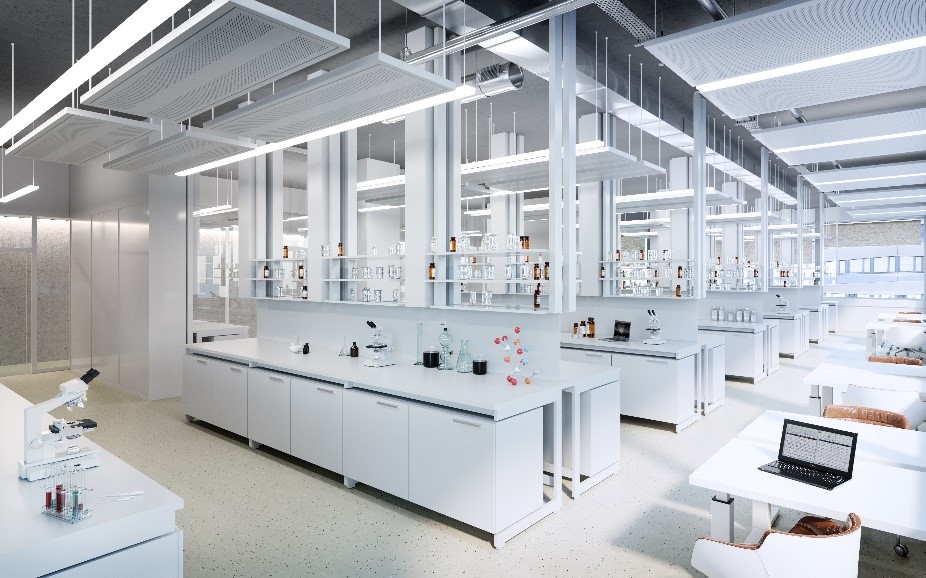
As a result of these influences, Swiss Prime Site made the decision to significantly expand the site in two construction phases (four new buildings) and double the area from 27 000 m2 to 60 000 m2. The first two new buildings – each with a surface area of 8 000 m2 – were completed at the end of 2020. One of the buildings has already been occupied by the new tenant Lonza. In another building, flexible office and meeting rooms were created that can be booked at short notice by site tenants and other users. Two additional, identical buildings are still under construction and are due to be completed in 2024.
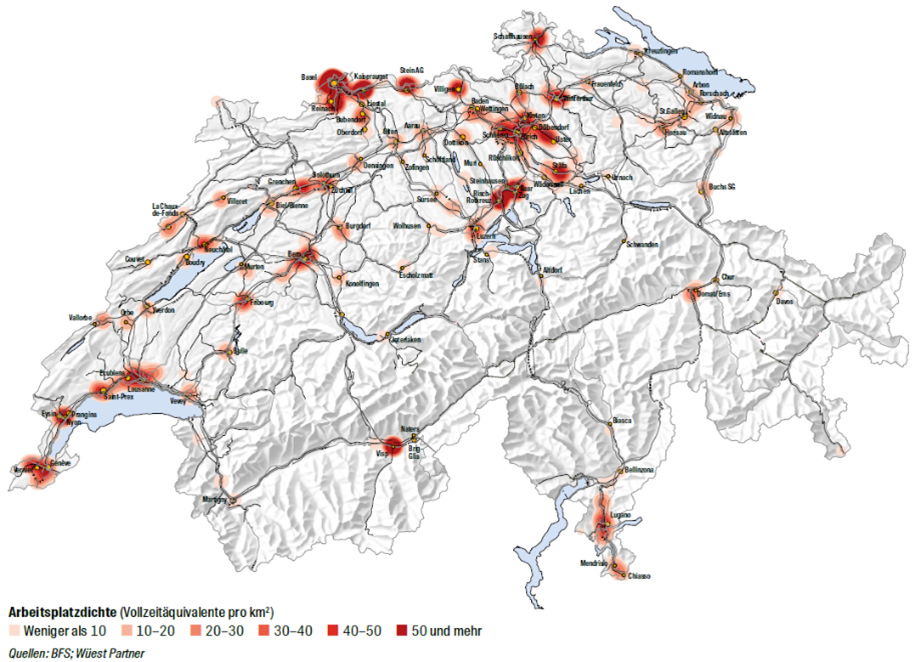
Stücki Park – a site with a big future
The former industrial site of the dyeing factory in the north of Basel is currently in the final phase of its transformation into a modern, technology-focused life sciences hub with great future potential. According to the Federal Statistical Office, the region is the biggest employer in this sector alongside Zurich. In Basel, around 25 000 people work in the life sciences, and the figure is increasing all the time. Along with the sector’s bright economic prospects, another key factor for Swiss Prime Site is the yield on the type of use. The fully equipped laboratory and research spaces that are currently available promise significantly higher returns compared to other types of use.
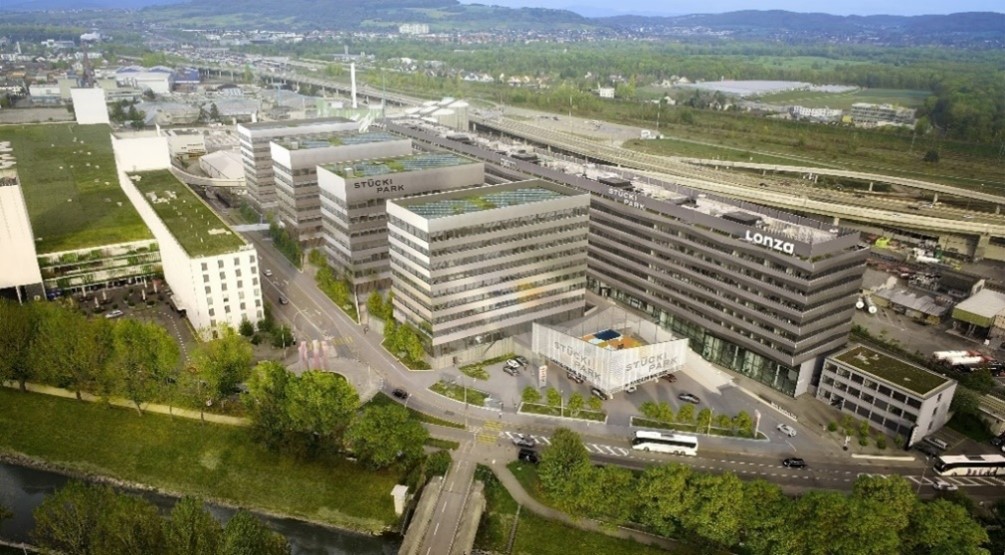
Further strengths of Stücki Park include the diversity of the site and its broad mix of tenants, users and visitors. With the transformation of the existing buildings into entertainment, gastronomy, leisure and residential zones, the site has become an urban development that exists in harmony with the neighbourhood and the city as a whole. The new buildings have also created space in the region for urgently needed laboratory and research premises. When the keys are handed over to the remaining tenants at the end of 2024 and Stücki Park is hosting several thousand people a day, it will mark a further chapter in the site’s rich history.
Infobox Life sciences
The field of life sciences includes all research areas concerned with living organisms, their structures and their processes. The sector invests heavily in basic research, knowledge and technology. Its influence extends to a wide range of other industries, from chemistry and pharmaceuticals to production technology and through to agriculture and nutrition.
The life sciences sector has several clusters in Switzerland. It employs a large number of people in the regions of Basel, Zurich and Lake Geneva, due in part to the regional universities and educational institutions based there. Demand for real estate with research and laboratory spaces is correspondingly high. Life sciences real estate is generally divided into four types of use: research & development, production premises, pharmaceutical logistics and office premises.
